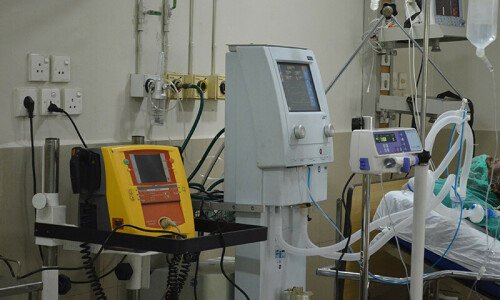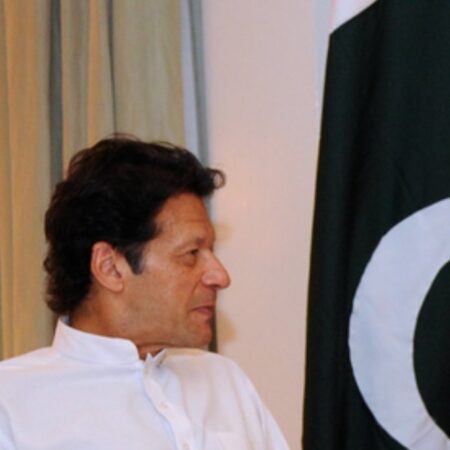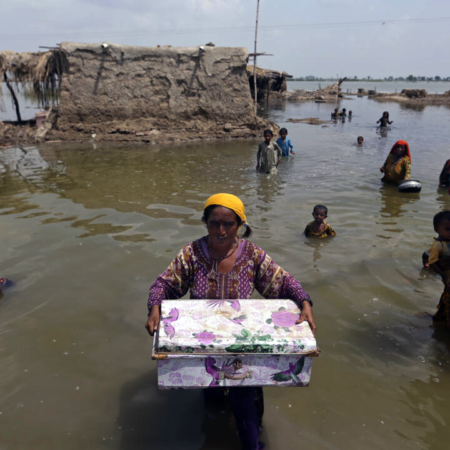In a historic ruling, the Islamabad Health Regulatory Authority (IHRA) gave hospitals in the Islamabad Capital Territory (ICT) policy directions directing them to release the bodies of deceased patients right away, outlawing the practice of holding them back due to unpaid medical expenses.
Families of patients who passed away in Islamabad had to deal with the upsetting circumstance of hospitals refusing to release the body unless all medical fees were settled for years. Loved ones had to handle funeral arrangements while juggling the weight of unpaid bills, which resulted in severe emotional and financial distress.

Many families were compelled to pay bills in full before receiving the body, adding to their already heavy load of grief and medical expenses. Private hospitals, which frequently demanded hefty advance payments, were especially affected by this problem.
“In accordance with patients’ rights and ethical standards, all hospitals in Islamabad are hereby directed to refrain from retaining or holding the body of any deceased patient on account of outstanding financial payments,” stated the notice released by the IHRA board.
Many members of the public have expressed gratitude for the decision, which represents a much-needed change in a tradition that has long upset bereaved families.
Residents claimed that families found it difficult to raise the money when patients died suddenly or after protracted illnesses, running the risk of delaying the burial of their departed loved ones.
They claimed that the public has greatly benefited from the directives of IHRA’s recently established board, and many people have expressed their gratitude on social media and in public places.
“This decision is a blessing for families going through the toughest time of their lives,” said Islamabad resident Haider Ali.
“I had to run from pillar to post to pay bills before we could bury my father, who passed away from a sudden heart attack,” he added. The experience was traumatic. This change makes me very happy.
Advocate Imran Ali expressed gratitude for the action, saying it was long overdue. It is cruel to add the financial burden of “paying for the body” to a family that is already broken by loss.
“Hopefully, this new rule will help stop this exploitation,” he said. Death should not be viewed as a commercial transaction by hospitals.
Support for the measure has also come from medical professionals, many of whom agree that it would relieve some of the strain on families and encourage institutions to take a more humane position in such delicate situations.
“While it’s important for hospitals to cover their operational costs, we must ensure that families are not exploited during their most vulnerable moments,” said Professor Dr. Nasir Ali, a cardiologist at the Pakistan Institute of Medical Sciences (Pims), in response to the new orders.
“This directive strikes a crucial balance between maintaining the deceased’s dignity and financial sustainability,” he said.
He said that hospitals should budget for these kinds of situations because they bring in a lot of money all year long and because, despite the tragedy, deaths are not common.
He brought attention to the problem of hospitals keeping death certificates in order to pay their debts, which he believes goes against our moral, social, and religious principles.
This ruling is consistent with comparable procedures in many other nations throughout the world, where financial transactions have been subordinated to ethical issues regarding the release of deceased bodies.
Prioritizing the dignity of the deceased and empathy for their families, the National Health Service (NHS) in the UK makes sure hospitals are unable to refuse bodies due to unpaid costs.
Similar to this, hospitals and funeral houses in Canada and Australia release the deceased right away, even if they haven’t received full payment, with any unpaid debts being paid off later through insurance or payment plans.
Experts caution that hospitals would require a sustainable approach to recover expenditures, despite the new directive’s acclaim.
According to them, private hospitals that depend on upfront payments can run into problems and need more funding and oversight.
The decision by IHRA, which guaranteed the prompt release of deceased corpses, was seen by the public as a major step towards the development of a compassionate healthcare system in Islamabad.
According to them, it will be difficult to strike a balance between hospital funding and patient care, and the public’s backing underscores the need for more compassionate medical procedures.












No Comment! Be the first one.